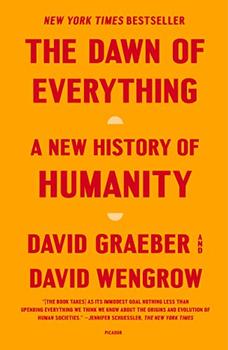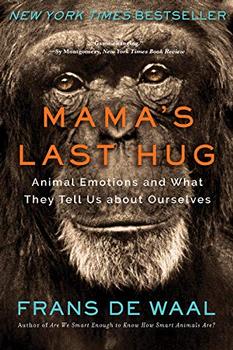Summary | Excerpt | Reviews | Beyond the book | Read-Alikes | Genres & Themes | Author Bio

How a Selfish Ape Invented a New Moral Code
by Michael E. McCullough"Do unto others as you would have them do unto you." Everyone, at some point in their life, has probably heard some variation on this old adage. It is present in all the major world religions. As a moral imperative, it is difficult to argue with, even if some philosophers have tried. Perhaps the reason why it seems so unquestionable is that it is the linguistic expression of an ancient survival tactic, one that has been so successful that it has become ingrained in our evolutionary psychology. Kindness to strangers, as Michael E. McCullough explains in his new book, has a very long history, one that is inextricably linked to the endurance of our species.
Initially, a cynic might balk at such a commendatory assessment of the human race. Suspend your judgment. McCullough is social scientist, not a philosopher. Although he writes with the disarming alacrity of a born optimist, The Kindness of Strangers is couched in hard, empirical fact. Beginning, suitably, at the beginning of life on earth, McCullough's book traces the origins of altruistic tendencies in various species, patiently explaining the theories of evolutionary psychologists and biologists as to why these tendencies might exist. The cumulative maxim is gloriously stark: "Selfishness beats altruism within groups. Altruistic groups beat selfish groups. Everything else is commentary." Whatever you might think about the state of the world today, you'd be hard-pressed to argue with the lessons of evolution.
As he guides the reader through 200,000 years of human civilization, McCullough displays how time and again humanity has employed this maxim to its advantage. Born out of our evolutionary hard-wiring to look after kith and kin, our incentive to be altruistic has been gradually developing for thousands of years. We've had our ups and downs, it's true — for example, the discovery of farming may have been an advancement in procuring food, but it was a major setback in terms of equality. However, from as early as 2300 BCE, there is evidence of decrees designed to shield the most vulnerable in a population. Time and again, it seems, the rulers of civilizations have come up against the same essential truth: that taking care of the poorest members of a society also produces benefits for the rich. Due to its practical advantages, this strategy has continued to grow. For example, charity has often been considered a theological imperative among adherents of a religion, and today, the global eradication of poverty is first on the list of the UN's Sustainable Development Goals.
McCullough is a natural teacher, with a rare gift for giving clear, concise explanations of complex events. Despite its academic subject matter, his writing is alive, imbued with a bonhomie free of condescension. The wealth of fascinating historical anecdotes alone is reason enough to pick up this book, but the conclusions it draws are what make it important.
It's been a slow uphill climb for humanity to reach the level of awareness that we have now. Generosity does not come naturally to us. Providing help to strangers is costly, and natural selection does not favor those who give it out indiscriminately — as such, we are in some ways psychologically ill-equipped for altruism. However, as McCullough reminds us, the advantages of living in a compassionate society are not only moral, they are logical. Each civilization in history (or at least those that were successful) has come to this same conclusion. As humanity faces its biggest global challenge yet — climate change — it is important to realize that compassion has always been the most successful survival strategy. The Kindness of Strangers serves as a practical reminder that we must take care of one another.
![]() This review
first ran in the August 5, 2020
issue of BookBrowse Recommends.
This review
first ran in the August 5, 2020
issue of BookBrowse Recommends.

If you liked The Kindness of Strangers, try these:

by David Graeber, David Wengrow
Published 2023
A dramatically new understanding of human history, challenging our most fundamental assumptions about social evolution―from the development of agriculture and cities to the origins of the state, democracy, and inequality―and revealing new possibilities for human emancipation.

by Frans de Waal
Published 2020
New York Times best-selling author and primatologist Frans de Waal explores the fascinating world of animal and human emotions.
Your guide toexceptional books
BookBrowse seeks out and recommends the best in contemporary fiction and nonfiction—books that not only engage and entertain but also deepen our understanding of ourselves and the world around us.